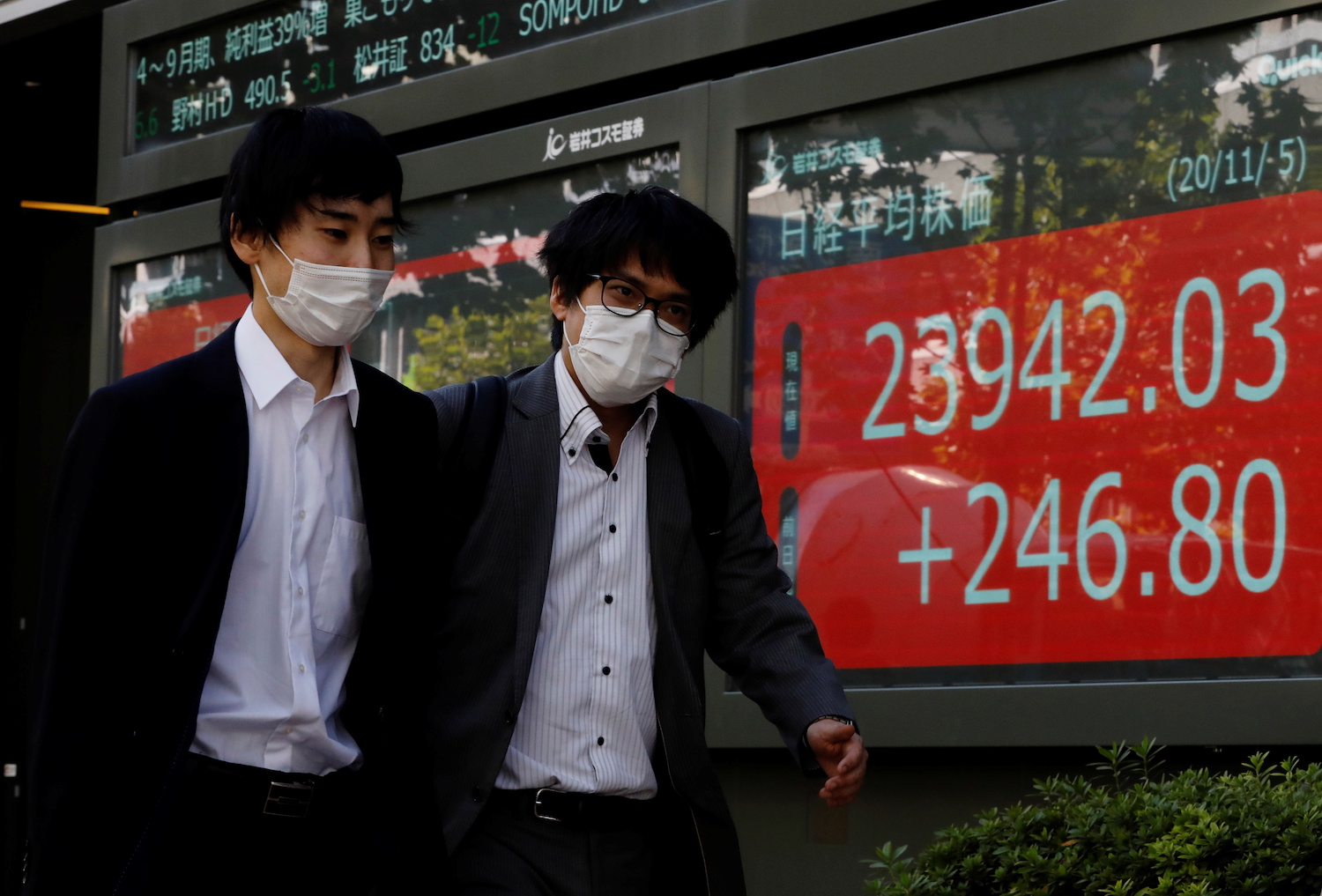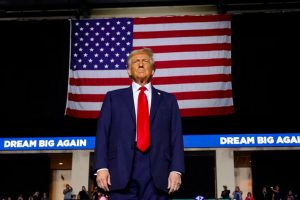Tokyo’s Nikkei led the retreat on Friday as Asia’s markets sank and investors tracked another hefty sell-off on Wall Street.
Traders, concerned about the prospect of higher borrowing costs, a possible US debt default and signs that the global recovery is slowing, ended a gloomy week on another low note.
While the fourth quarter is generally considered a strong period for traders, it has started in much the same fashion as the previous one ended, with uncertainty replacing optimism that the worst of the pandemic is over.
Also on AF: Chairman Mao’s Favoured Carmaker Enters Europe With EVs in Norway
News that US lawmakers had finally passed legislation to avert a costly government shutdown did little to allay concerns about the fact that they are unable to agree a deal to raise the debt limit.
Top officials including Treasury Secretary Janet Yellen and Federal Reserve boss Jerome Powell have warned that failure to do so before the cash runs out in mid-October would leave the country unable to pay its bills and default, leading to an economic catastrophe.
At the same time, Democrats continue to bicker among themselves over Joe Biden’s multi-trillion-dollar infrastructure and social spending bills, which will still face a tough passage through Congress.
Investors are also preparing for the Fed to start tapering its massive bond-buying programme before the end of the year.
The move will bring an end to the massive financial support put in place at the start of the pandemic that has been a key driver of the global economic and equity recovery. Observers are speculating a hike in interest rates could then come before the end of 2023.
INFLATION SPIKE
The bank’s monetary tightening – which is being mirrored in other economies – comes as it looks to temper a sharp spike in inflation fuelled by the worldwide reopening, supply chain bottlenecks and surging commodity prices.
All three main indexes on Wall Street ended in the red on Thursday, with the S&P shedding more than 4% in September.
Asia followed suit as Tokyo fell more than 2% and investors brushed off the closely watched Tankan business survey showing confidence among major Japanese manufacturers had improved for the fifth consecutive quarter.
The benchmark Nikkei 225 index closed down 2.31% or 681.59 points at 28,771.07 while the broader Topix index was down 2.16% or 43.85 points at 1,986.31.
Sydney lost more than 2% despite news that Australia will begin to reopen its borders in November after 18 months of restrictions.
TEETERING EVERGRANDE
Seoul, Singapore, Taipei, Mumbai, Manila and Jakarta also fell, though Wellington was flat. Hong Kong and mainland Chinese markets were closed for a holiday.
A wary eye was being kept on China as troubled property titan Evergrande teeters on the brink owing more than $300 billion, with hope that authorities – who have until now stayed largely silent on the crisis – may comment during a week-long holiday.
Beijing’s crackdown on a range of industries including tech firms also continued to jangle nerves.
“The old adage, the market climbs a wall of worry, is not lost on us,” said Tom Mantione, at UBS Private Wealth Management.
“Worries about China, the pandemic, the debt ceiling and [US] tax legislation are weighing on investors right now, but it is important to understand which issues may create structural change and which ones create short-term volatility that investors can take advantage of.”
MARKETS
Tokyo > Nikkei 225: DOWN 2.3% at 0615 GMT (close)
Hong Kong > Hang Seng Index: Closed for a holiday
Shanghai > Composite: Closed for a holiday
New York > Dow: DOWN 1.6% at 33,843.92 (close)
- AFP with additional editing by Sean O’Meara
























